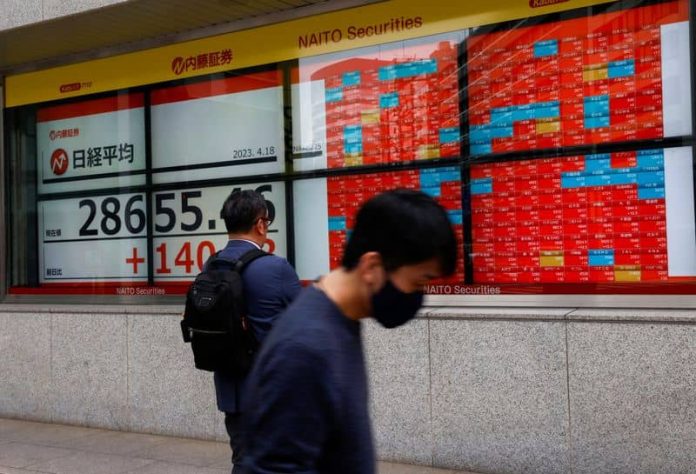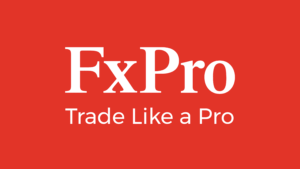By Tom Westbrook
SYDNEY (Reuters) – Asia’s stock markets were mixed on Wednesday with growth concerns dragging on China’s equities while shares rose in Japan and Australia after healthy U.S. company earnings and retail data bolstered hopes the world’s biggest economy could avoid a recession.
Hotter-than-expected inflation lifted the New Zealand dollar briefly and stoked nerves ahead of Britain’s consumer price index (CPI) release at 0600 GMT. Tesla (NASDAQ:TSLA), Goldman Sachs (NYSE:GS) and Netflix (NASDAQ:NFLX) report earnings on Wednesday.
MSCI’s broadest index of Asia-Pacific shares outside Japan was dragged 0.6% lower by a 1.2% drop for the Hang Seng. It has fallen daily since China’s growth data on Monday underscored the country’s faltering pandemic recovery.
Japan’s Nikkei rose 0.9% and touched a two-week peak. U.S. and European futures were flat.
Headline U.S. retail sales data came in below forecasts, but core sales which exclude food, fuel and building materials, rose a solid 0.6% in June and had economists lifting gross domestic product (GDP) forecasts.
“You can sense the probability of a soft landing,” said Tapas Strickland, head of market economics at National Australia Bank in Sydney. “Core inflation is coming down and there’s momentum from the consumer.”
The Atlanta Fed’s influential GDP Now tracker has the U.S economy growing an annualised 2.4% in the second quarter, slightly higher than its prediction of 2.3% a week earlier.
Big U.S. bank shares rose sharply on strong results. Microsoft (NASDAQ:MSFT) shares surged 4%, adding $100 billion in market value, after the company announced charges for artificial intelligence features in office software, a big first step in monetising AI’s potential.
INFLATION RISKS
British inflation data is the next major challenge for market hopes that price rises are coming under control. A surprise to the downside, as happened in Canada on Tuesday and the U.S. last week, could unleash a broad rally in risk assets.
New Zealand inflation came in at 6% year-on-year, slower than a reading of 6.7% a month earlier, but above expectations and drove up two-year swap rates as markets price in rates staying higher for longer.
The New Zealand dollar jumped to $0.6315 before slipping back to $0.6259 as the U.S. dollar edged higher with a little help from a weaker euro.
European Central Bank (ECB) governing council member Klaas Knot said on Tuesday that hikes beyond next week’s meeting were “by no means a certainty,” knocking the euro from a 17-month high. It was last trading at $1.2220.
“This is perhaps the first time a known hawk within the ECB has backed the market’s view that we’re close to the end of the hiking cycle in Europe,” said Chris Weston, head of research at broker Pepperstone in Melbourne.
The remarks also drove a rally in European bonds, gilts, and Treasuries that extended into Asian sovereigns on Wednesday.
Benchmark 10-year U.S. Treasuries yields were 2 basis points lower at 3.7717%. [EUR/GVD]
The yen slipped to a one-week low of 139.43 per dollar and Japanese government bonds rallied following the Bank of Japan’s governor sticking to his script that policy shifts are still some time away.
Brent crude oil futures were steady at $79.42 a barrel after gaining on Tuesday. Gold held gains made as yields fell and bought $1,975 an ounce.




















